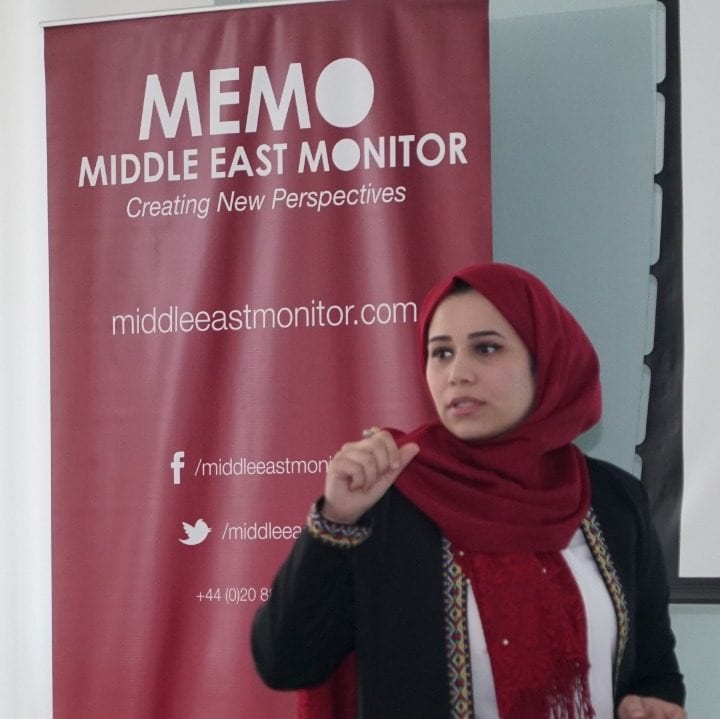The cities of Recife and Olinda, northeastern Brazil, recently hosted the 14th National Union of Students (UNE) Festival, a major gathering that brings together thousands of young people from across the country under the slogan “FREE Palestine…The street is our main stage.” This year’s festival stood out not only for its celebration of student activism and culture but also for its strong expression of international solidarity with Palestine.
First held in 1999, the National Union of Students Festival is a cultural, artistic and academic event organised by UNE. It is considered one of the largest student festivals in Latin America, drawing thousands of students from across Brazil to engage in cultural, artistic, academic and political activities.
The festival, which ran from 2-4 February, featured a diverse programme of discussions, cultural workshops and political events, with the participation of prominent officials such as Brazilian Minister of Culture Margareth Menezes, Minister for Racial Equality Anielle Franco and Secretary-General of the Presidency Márcio Macedo. The events took place at the Guararapes – Chico Science Theatre at the Pernambuco State Conference Centre.
The festival reaffirmed the long-standing role of the Brazilian student movement in defending democratic causes. The “Free Palestine” event symbolised Brazilian youth’s commitment to the Palestinian cause, reinforcing the solidarity links between students in Brazil and Palestine in their shared struggle for freedom and justice.
READ: Widespread Latin American opposition to Trump’s Gaza plan
The event also featured Ualid Rabah, president of The Palestinian Arab Federation of Brazil (FEPAL), who affirmed: “The widespread rejection of the genocide in Palestine is supported by the majority of the Brazilian people, especially in student and university circles.”
Rabah pointed out: “Brazil is distinguished by the presence of national student organisations such as the Brazilian Secondary School Students Union (UBES) and the National Union of University Students, which facilitates the coordination of a unified message across the country and allows student organisations to adopt clear positions on international issues.”
FEPAL adopts a strategy to communicate with other public organisations, such as trade unions, labour, feminist and youth movements, and entities that oppose racial discrimination, aiming to strengthen support for the Palestinian cause within student agendas, Rabah explained.
“The efforts made have succeeded in bringing the Palestinian cause back into the spotlight of student and social movements, as was the case in the past when speeches by representatives of the Palestine Liberation Organisation were among the most prominent moments of student conferences,” he shared with MEMO.
“Young people have an increasing awareness of humanitarian issues and a greater sensitivity to colonialism, which explains their prominent role in exposing the practices of Israeli occupation, especially in North America and Europe, where they led campaigns to expose government and corporate complicity in the crimes committed against Palestinians. This has driven Zionist organisations to launch campaigns of persecution and defamation against students and professors in major universities, leading to their dismissal from their educational institutions.”
Shifting narratives: How Brazilian media covered the genocidal war in Gaza (2023–2025)
The “Free Palestine” event included calls to sever diplomatic, political and economic relations with Israel, including ending cooperation agreements between Brazilian universities and their Israeli counterparts. It also highlighted the growing academic interest in the Palestinian cause, with an increase in university research, master’s theses and doctoral dissertations addressing Palestine.
The demands included: “Rewriting Brazilian curricula that still reflect distorted narratives about the Palestinian cause, in addition to modifying media and cultural policies to reduce the impact of Zionist propaganda.” Rabah considered one of the key objectives as ending the “false neutrality” so that the presence of a Zionist representative is not imposed in discussions related to the Palestinian cause because: “Crimes against humanity are not debated, but condemned and fought against.”
Rabah offered a hopeful vision: “Awareness of the Palestinian cause in Brazil is undergoing an unprecedented transformation, despite attempts by the dominant media to manipulate public opinion. Brazilian youth are more aware of the justice of the Palestinian cause today, reflecting a fundamental shift in public opinion and the future of Brazilian politics.”
The views expressed in this article belong to the author and do not necessarily reflect the editorial policy of Middle East Monitor.

![The National Union of Students Festival (UNE) took place at the Pernambuco State of Brazil, February 2025. [FEPAL]](https://i0.wp.com/www.middleeastmonitor.com/wp-content/uploads/2025/02/The-National-Union-of-Students-Festival-UNE-took-place-at-the-Pernambuco-State-of-Brazil-February-2025.-Photo-source-FEPAL.jpg?fit=850%2C564&ssl=1)







